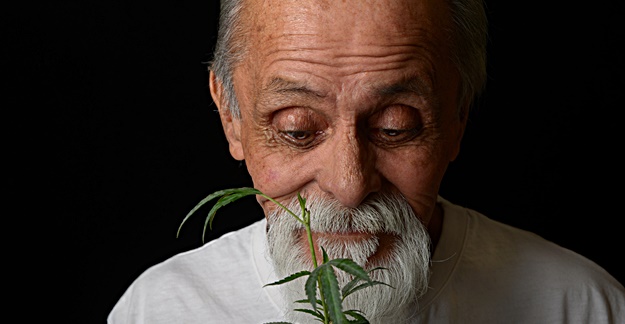When I think of a typical marijuana user, I admit I tend to stereotype. I see a young person, at home or with friends, smoking a large joint and having a good time. I don’t picture a grandma toking. Yet new research indicates that older people, in fact, are using cannabis more and more.
A new study found that the number of middle-aged and older adults using marijuana is on the rise. The analysis, based on the National Survey on Drug Use and Health, found that about 9% of adults between 50 and 65 had used cannabis in the last year, and about 3% of those 65 and older had. In 2013, those figures were, respectively, 7% and 1.4%.
Laws allowing for marijuana use – either recreationally or for medical purposes – are on the rise and can explain the increase. There is some medical evidence that marijuana can be used for a variety of medical conditions, such as pain, nausea from chemotherapy, multiple sclerosis, epilepsy and seizures, and this may also help to explain the increase in the older population.
Why Worry about marijuana?
So what’s the big deal, you might ask? Since older people tend to take multiple medications, there is a risk of marijuana potentially interacting with those drugs and undermining their effectiveness. Yet because marijuana research is limited in the US, thanks to strict restrictions from the government, it’s hard to know exactly what those impacts are.
If older individuals – or any people, for that matter – are using marijuana for medical purposes, hopefully their doctors are aware of the medications being taken. However, if you are using marijuana and your doctors don’t know, you should tell them as soon as possible. They may be aware of potential marijuana-drug interactions.
Despite the lack of research on marijuana-drug interactions, there are certain classes of drugs that don’t mix well with cannabis. Because marijuana is very calming on the body, taking drugs that have sedating effects is a big no-no. For example, taking benzodiazepines such as Valium (diazepam) and Xanax (alprazolam), which are used for anxiety and insomnia, or muscle relaxants can lead to central nervous system depression. The same goes with using cannabis and alcohol.
Cannabidiol (CBD), one of the chemicals found in marijuana, is a big culprit for problems. Why? It can inhibit an enzyme in the liver that is used to break down medicines. When this happens, the medication ends up staying in the body longer, which can enhance the effects of drugs. CBD can even slow the breakdown of statin medications, used to lower cholesterol. That can increase the chances of side effects associated with statins, such as muscle pain.
There is also evidence that marijuana can impact the effectiveness of antidepressants. This is because marijuana may speed up metabolism of the antidepressant in the body. As a result, a person may need higher doses in order to get the same effect from the antidepressant.
More research is needed not only on the benefits and risks of marijuana as a medical treatment, but on cannabis-drug interactions. The trend in older people using marijuana makes the research all the more urgent. It’s time for the federal government to loosen restriction of cannabis research.







